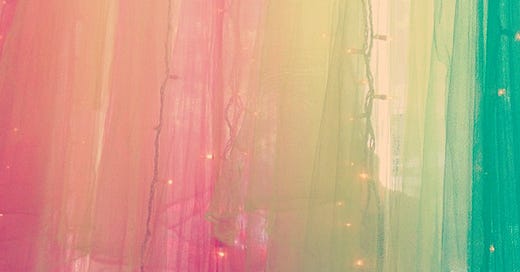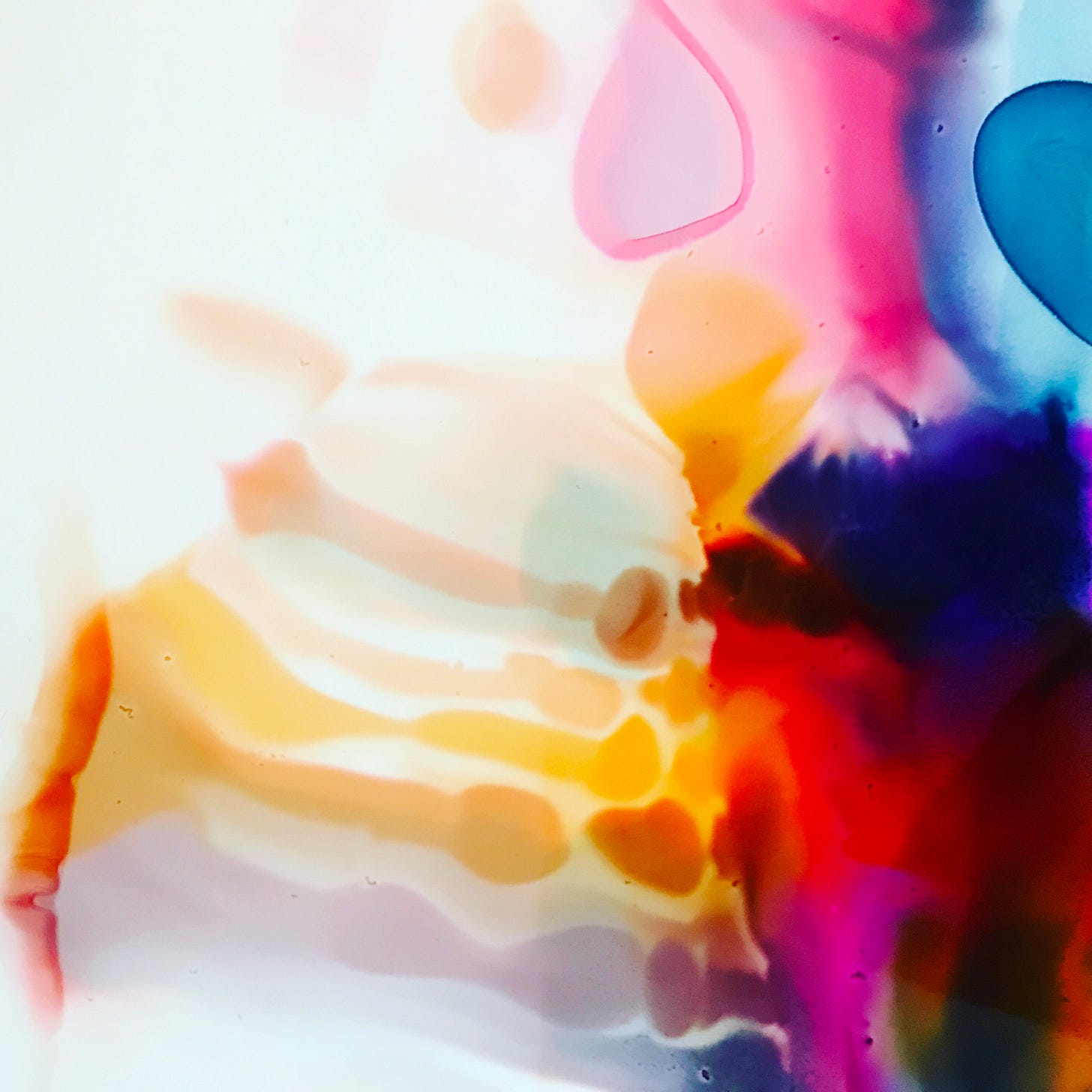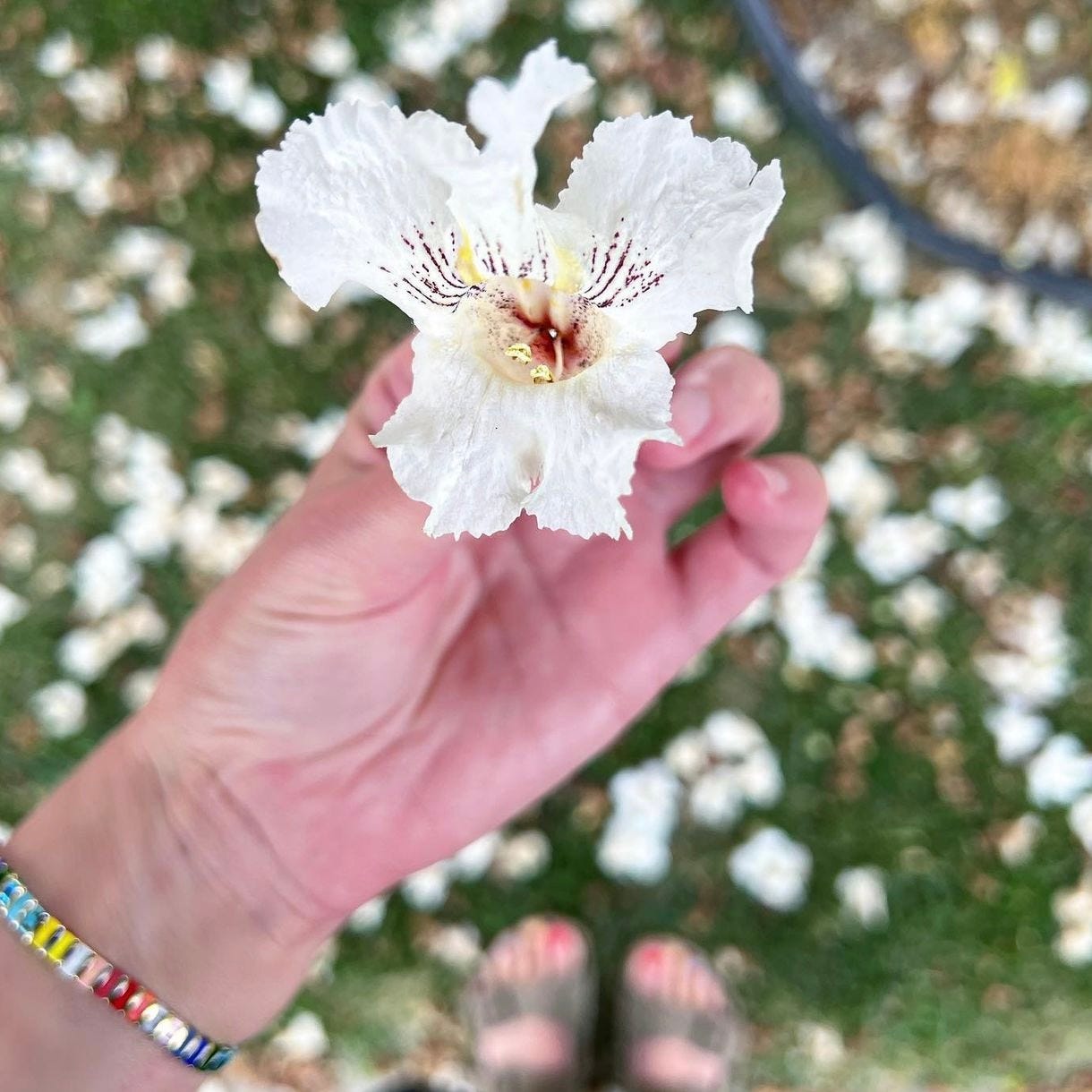In a session a few months ago, my therapist asked me a question I’ve been thinking about daily, ever since: “Does your lifestyle support your sensitive system?”
I’ll share with you an excerpt from my book that helps to paint the picture of said system:
I am a sensitive being. I faint when I have bloodwork done, and I am nearly in tears every time a dentist touches my gums. I still have tinnitus from my college boyfriend’s punk band’s shows, my bruises last for weeks, light leaves impressions behind my eyelids for hours, ASMR destroys me, and your words will echo for a lifetime. I cry at the smell of rain, at the sound of fireworks, and at most sitcoms, rom-coms, and even reality freaking TV.
I was told repeatedly in childhood, “You’re being too sensitive!” as if it were a bad thing. However, I see my sensitivity as part of what I’m here to offer in this life. I truly don’t think I could be an effective therapist, coach, healer without my empathic nature (once I learned how to take care of myself while being of service to another.) I also think sensitivity serves me as an artist and writer because I convey my acute perceptions through this hyper-impressionable lens. I see the world as if from a slightly-fevered brain — with eyes that perceive in vivid, seeping colors and sparkling lights, with ears that are easily pierced by the most subtle sounds, and with an exceptionally porous heart.
I’m a highly sensitive person (or HSP - yes, it’s a thing), as are 15-30% of people today, depending on the source. The nervous systems of HSPs are more sensitive to stimuli in our environments. I like to think I have created a sanctuary of my home and self-care rituals that reinforce my wellbeing, AND I fully realize that the world does not bend itself to cater to the sensitive ones of us. It’s a loud, bright, and sometimes harsh world, and many of us have learned to tolerate it. We’ve adapted, for better or worse. We power through things that bring dissonance in order to participate in “normal” activities… but there’s a socially-decided not-normalness to being a HSP. I know this because they’re still shining giant, offensive, fluorescent lights above us in grocery stores, turning the volume up on the ads on our televisions, put blinding LED headlights on cars, and spraying chemical perfume at us in department stores.
As I am aging, I’m learning to honor the delicate parts of myself that are receptive to every. friggin. thing. I’m trying to strike a balance between tolerating discomforts when necessary with asking for what I need around my sensitivities so that I don’t become overstimulated and grouchy. My girlfriend accepts the fact that I keep my house dimly lit with incandescent light bulbs in shaded lamps and never turning on the overhead lighting. My teenager now wears headphones when they need loud music during the early evening hours because they know that’s the time of day when loud sounds overstimulate me. Little tweaks can make for big relief.
Scientists are still attempting to determine whether highly sensitive people fall under the neurodivergent umbrella, while some already consider HSPs to be neurodivergent individuals who are thought to have an increased or deeper central nervous system sensitivity to physical, emotional, or social inputs. Either way, being highly sensitive is not a disorder or condition that needs “fixing” whatsoever.
A couple months ago, I was a guest on the Neuroqueering podcast. In the episode, the host asked if I consider myself neurodivergent. When I referred to myself as a highly sensitive person, the host said that phrase is often an ableist way of saying autistic, as the autism spectrum has recently widened to include far more traits than previously recognized. In that conversation, I described my recent experience in reading
’s book, The Electricity of Every Living Thing, where she illustrates a series of sensitivities I can relate to. She eventually receives an enlightening autism diagnosis as an adult woman — something that’s incredibly hard to do by today’s limited testing procedures. She offers wonderful resources on the topic on her website here.I still have so much to learn in terms of how and why to categorize these traits, but in the meantime, I am learning to create a lifestyle that supports my sensitivity. I’m learning to be softer with myself.
reading: Bittersweet by Susan Cain is next up on the ol’ Audible… It’s been recommended to me by so many people over the past couple years, and I think it might be because I’m a HSP and an enneagram type 4.
watching: Talk about emo… tis the season for me to ugly cry to my favorite holiday movie again, The Family Stone.
following: Just as I was scheduling this post to be sent your way,
published this awesome post on sensitivity, including facts and a thorough round-up of other writers on this topic. Definitely worth reading!burrowing under all winter: my weighted blanket
using for anticipatory nostalgia: My one-line-a-day, 5-year journal. I’m finishing up my second year. (It makes such a great gift for anyone this time of year!)
donating to: It’s a new month, so throughout the month of December, a portion of my earnings from new paid prism subscriptions will go to Transanta, helping trans youth in need this holiday season.
holiday gift ideas:
🎁 Don’t miss this special December post where I shared 11 new ways of thinking about giving to your beloveds and links to some specific and terrific personal presents!
🎁 Consider a gift subscription to prism! The annual subscription is just $50 ($4.17/month) for lots of value and engagement opportunities. You can schedule the gift notification email to be sent to your bestie or beloved on a day of your choosing, and it’ll keep on giving all year long.
🎁 Or take advantage of the rare sale going on right now on my 60-card, intuitive watercolor SoulSpace Oracle deck on Etsy. Get 20% off only through this Friday, December 8, by entering code PEACEFULHOLYDAYS2023 at checkout.
heartfelt gratitude
Thank you again for welcoming me into your likely overcrowded inbox. I’m hoping my words are a breath of fresh air amidst all the holiday ads. Whether you’re an unpaid or paid subscriber, having a spot there is a privilege I don’t take for granted, as it gives my art and writing (and me!) a place to breathe.










